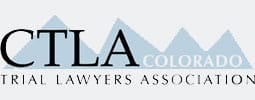Spring is swiftly approaching. For one specific group of people this means only one thing--bring out the motorcycles.
In 2015, the federal government estimated that the number of deaths on motorcycles was 29 times the number of deaths in car accidents. And as one would expect, the resulting injuries are typically more severe, as well. Because head trauma is the most common among motorcycle fatalities, the importance of wearing a helmet cannot be ignored. Luckily, motorcycle helmet manufacturers vigorously and meticulously test their helmets to offer some level of assurance that motorcyclists have the best of the best when it comes to safety and variety.
Helmet safety schemes
There are a few types of helmet schemes and each of them is different. So let’s take a look at the most common standards and safety certifications.
DOT (Department of Transportation) helmet standard
This standard of helmet safety is considered the most basic out of the ones we’ll be covering. DOT sets standards in three areas of helmet performance: energy absorption, penetration resistance, field of vision, and retention system effectiveness. The DOT standard has one of the more rigorous testing schemes, and with each testing method well-documented, it leaves very little room for error. DOT is one of the only standards whose helmets aren’t tested by the issuing body. Instead, independent contractors are hired to test individual helmets in hopes of catching the faulty lids.
The DOT rating favors a shock-absorbent helmet, and has done extensive testing accordingly. But this specific standard of helmet safety lacks testing in areas like removability, friction resistance, and optical testing.
ECE (Economic Commission for Europe) helmet standard
The ECE standard is the universal requirement for Europe, just as the DOT is the standard in the United States. They are also the most commonly used helmets worldwide. It is very similar to DOT in terms of field of vision and impact absorption, but unlike the DOT standard, ECE tests the chin strap buckle system and abrasion resistance. One of the bigger differences is that the ECE system requires batch testing before any products go to the market, whereas DOT does not.
There is one noticeable con with this specific standard. Motorcycle crash speed in Europe are much lower than those in the United States, so their low-energy testing may be too low for the higher speeds in the United States.
SNELL (Snell Memorial Foundation) helmet standard
The Snell Memorial Foundation is a non-profit organization that was founded in the name of William Snell, a car racer who died from a preventable head injury. SNELL is largely considered the gold standard for helmet safety and is well-respected. This organization tests their helmets with the energy levels and safety requirements of the racetrack in mind. This is reflected in additional testing like stability and ease of removal in the case of an emergency.
The SNELL Memorial Foundation is a private organization, so manufacturers must apply for a SNELL rating. When approved, manufacturers send sample helmets to SNELL for testing using the Foundation’s in-house tests. If the helmet passes all of these tests, it receives certification under that standard and the manufacturer is allowed to label the helmet as SNELL certified.
Since SNELL is a private company and they do extensive testing on their helmets, the cost manufacturers spend on this testing may reflect in retail prices for consumers.








No Comments
Leave a comment